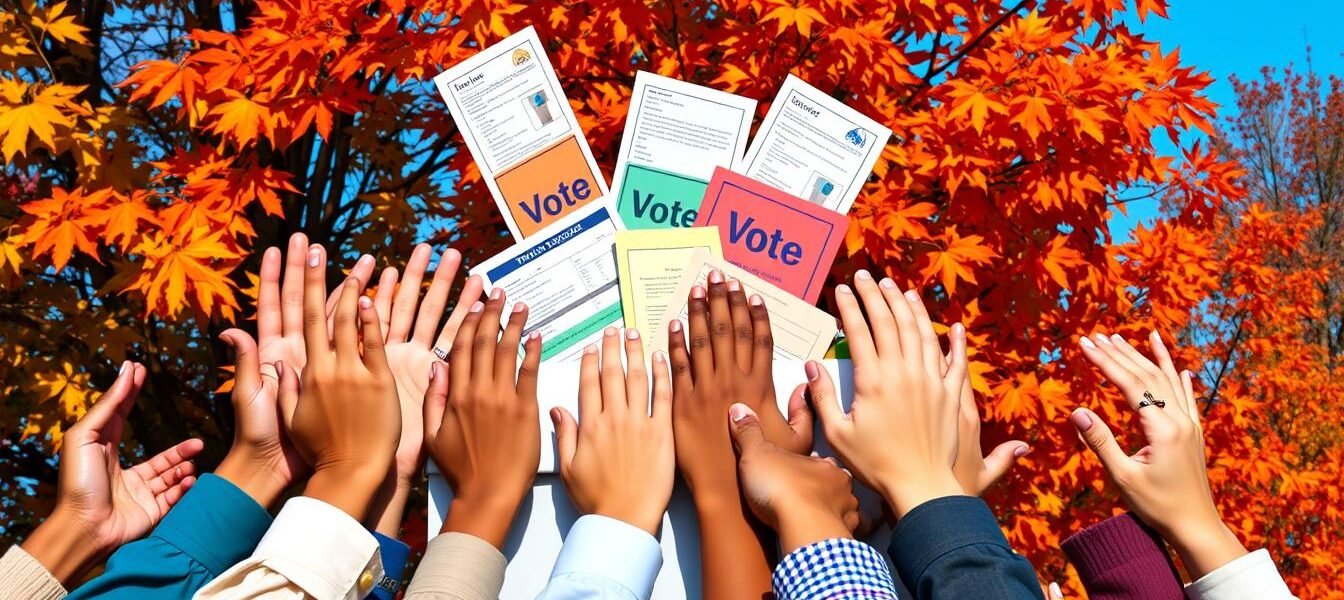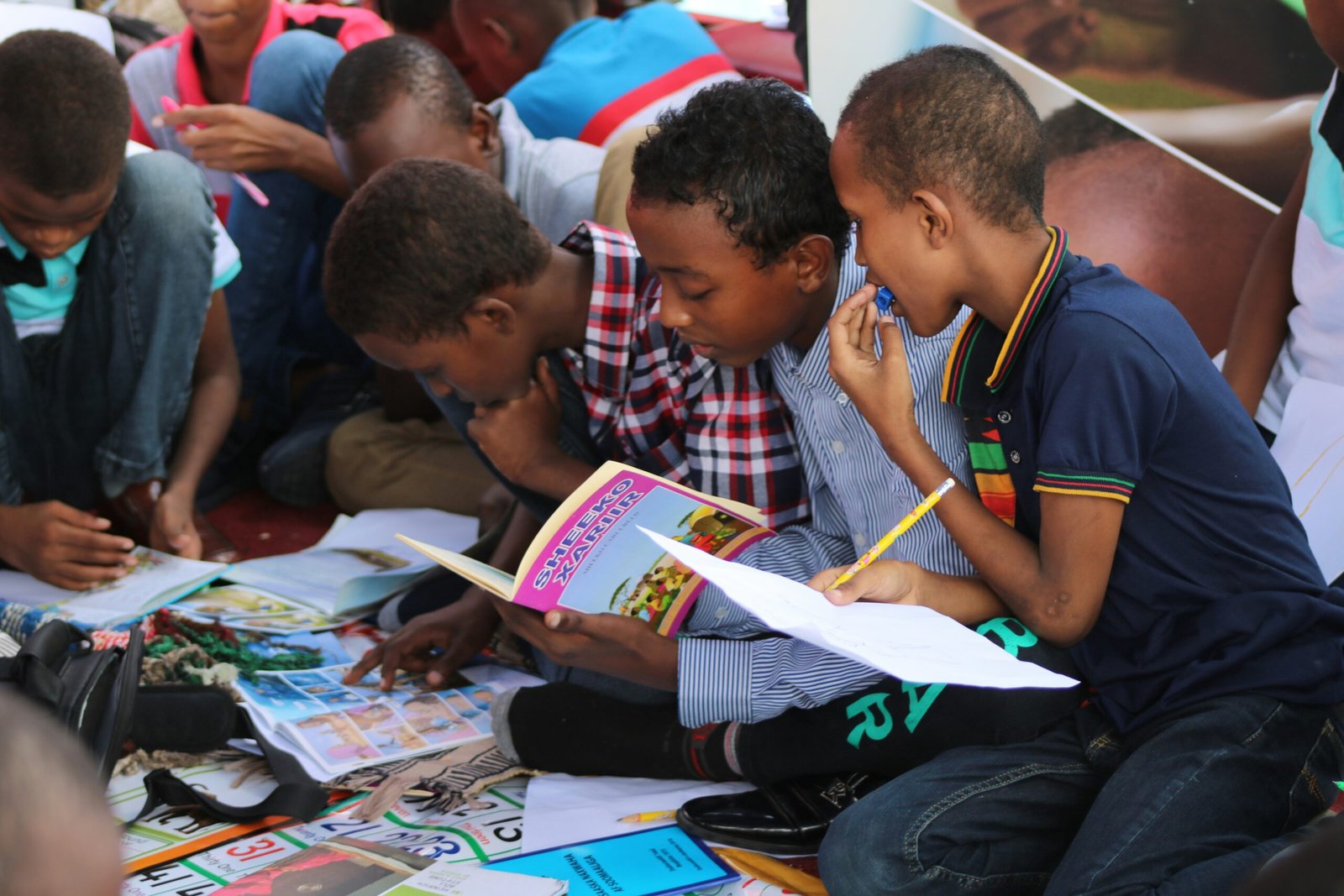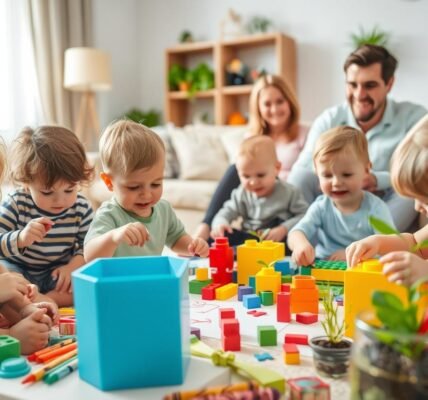Why Voting Matters: Your Voice Makes a Difference
“The vote is the most powerful instrument ever devised by man for breaking down injustice and destroying the terrible walls which imprison men because they are different from other men.” – Lyndon B. Johnson
As the nation gears up for a pivotal election, students at Oak Mountain High School are preparing to cast their ballots for the first time. This moment of civic engagement highlights the critical role that each individual’s vote plays in shaping the future of our democracy.
Susan Schwartz, an AP Government teacher at the school, emphasizes the importance of an educated citizenry, not just an informed one. “It’s not enough to simply know the facts,” she explains. “We need to understand the nuances of the Constitution, the role of political parties, and the real-world implications of our choices.”
First-time voters at Oak Mountain High School express a range of concerns, from the economy and reproductive rights to the status of women in the United States. These young citizens recognize the weight of their decisions and the far-reaching impact their votes can have on the nation’s future.
Key Takeaways
- Voting is a fundamental right and responsibility in a democracy.
- Each individual’s vote carries significant influence on the outcome of elections.
- Educating citizens on the political process and encouraging civic engagement is crucial.
- First-time voters are deeply invested in shaping the country’s future.
- Overcoming misinformation and social media challenges is essential for informed decision-making.
Understanding the Importance of Voting in Modern Democracy
The electoral process is key to modern democracy. Informed citizens play a big role in shaping the outcome. Voter turnout is crucial and affects election results. As we approach a big election, remember, every vote counts.
The Role of Informed Citizens in Electoral Process
Informed citizens are vital in the electoral process. They stay updated on issues and candidates. This helps them make informed decisions that reflect their values.
This engagement strengthens democracy. It also makes sure elected officials are accountable.
Impact of Individual Votes on Election Outcomes
In close elections, one vote can change everything. Swing states like Pennsylvania show how important turnout is. Polls are open from 7 a.m. to 8 p.m. on Election Day.
Results start coming in around 9:15 p.m. This highlights the power of each vote.
Historical Significance of Voting Rights
The right to vote has been fought for by many. The Voting Rights Act of 1965 expanded voting rights. Voting has always been crucial in democratic societies.
“The right to vote is the cornerstone of our democracy, and we must protect it at all costs.”
As we near a critical time, the need for an informed electorate is clear. By voting, citizens can influence their community’s and the country’s future.
The Power of First-Time Voters in Shaping America’s Future
In Oak Mountain High School, a new wave of young voters is ready to impact America’s politics. They’re learning about civic duty and grasping the nation’s big issues. This shows their eagerness to shape the future.
These young citizens care about the economy, reproductive rights, and women’s status. Their involvement in elections shows their voices matter. They have the power to change politics.
At Oak Mountain High School, students are breaking the mold of low voter turnout among the young. They’re researching candidates and policies. They’re making choices that reflect their values.
“These young voters are the future of our democracy. Their engagement and commitment to shaping the country they will inherit is inspiring and essential for the health of our political system.”
Their impact is huge. In tight elections, young people’s votes can decide the winner. By voting, they ensure their voices are heard and their concerns are met.
The students at Oak Mountain High School are a beacon of hope for America’s future. Their dedication and knowledge remind us that the country’s future is in their hands. They’re ready to make their voices heard.
Critical Elections and Their Historical Impact
Throughout American history, some elections have been key moments. They have greatly shaped the country’s policies and society. These historical elections have had lasting effects, influencing everything from economic policies to social issues.
Defining Moments in Electoral History
One notable example is the election of Grover Cleveland. He became the first president to be elected to non-consecutive terms in the 19th century. This showed the fluid nature of American politics and the ability for voters to shift their support.
The current election cycle is also historic. It could see the first female president or the first convicted felon return to the White House. These electoral impacts have the power to redefine American governance and representation.
How Elections Shape Policy and Society
Past electoral outcomes have had long-lasting effects on American life. For instance, the election of certain presidents has led to significant changes in economic policies. This includes tax cuts or the implementation of new social programs.
Similarly, the composition of Congress can influence the legislative agenda and the direction of the country.
Learning from Past Electoral Outcomes
By studying the historical elections and their impact, we can gain valuable insights. These insights help us understand American democracy and the power of the electoral process. They can guide future voters as they navigate the complex and ever-evolving political landscape.
“The power of the vote is the foundation of American democracy. By understanding the historical significance of critical elections, we can better appreciate the profound impact our individual choices can have on the future of our nation.”
Voter Education: Beyond Social Media and Misinformation
The digital age has changed how we engage in politics. Now, learning about voting is key to fight fake news on social media. Susan Schwartz, a top political analyst, says being an educated citizenry is crucial. This means knowing the constitution, the limits of political parties, and how to check facts.
Social media has flooded us with information. So, learning to spot true sources from false ones is vital. This skill helps us make better choices for our communities and the country.
“Voter education is not just about being informed, but about developing the critical thinking skills to navigate the complex web of information we’re bombarded with every day,” says Schwartz.
Recent numbers show why teaching people about voting matters. Over 77 million voters cast their ballots early. States like Georgia, Michigan, North Carolina, and Wisconsin saw record numbers. But, false claims about voting could harm trust in democracy.
To tackle this, places like Michigan have special websites to clear up voting myths. Law enforcement worries that election lies could lead to violence. This shows we need good voter education fast.
We must look for reliable info instead of believing rumors on social media. By learning to spot misinformation and embracing media literacy, we empower ourselves and our communities. This way, we can shape the future of our nation.
The Importance of Voting in Swing States
In the world of American politics, swing states are very important. They decide who wins the presidency. These states are not always sure to vote for one party over the other. They have a big say in the Electoral College, which picks the next president.
Understanding Battleground State Dynamics
States like Pennsylvania are key battlegrounds. They have 19 Electoral College votes. Who wins these states can change the election.
In 2016, Donald Trump won Michigan by just 10,700 votes. In 2020, Joe Biden won by about 154,000 votes. This shows how important these states are.
Electoral College Impact
The Electoral College system gives more power to swing states. A candidate needs to win these states to become president. This makes voting in these areas very important.
Voter Turnout in Key States
- In 2020, Joe Biden won Maricopa county, Arizona, by 45,000 votes, with 50.3% of voters casting their ballots for him.
- Miami-Dade county, Florida, saw Biden beating Trump by seven points in the 2020 election.
- Saginaw county, Michigan, was won by Biden in 2020 by a mere 303 ballots.
- Biden beat Trump by just three points in Nevada’s 2020 presidential race in Clark county, which has approximately 50% of Nevada’s population.
- Erie county, Pennsylvania, which contains the city of Erie, saw a slim Biden win in 2020 after being won by Trump in 2016.
These examples show how close the margins can be. Every vote in swing states matters a lot.
“The power of the swing state voter cannot be overstated. In an era of deep political divisions, these voters hold the key to shaping the future of our nation.”
Young Voters and Their Role in Democracy
As the 2024 election gets closer, young voters are realizing their big role in America’s future. At Oak Mountain High School, students are talking about important election topics. They understand how voting affects their communities and the country.
These first-time voters are looking at issues that matter to them, like the economy and social justice. They see how voting can change policies that affect their lives. This shows they get how elections impact their future.
- Young people all over are seeing the power of their youth vote to change elections and bring about real change.
- In places like Pennsylvania and Arizona, young voters are working hard to be heard. They want to solve the problems they care about.
- With lots of young people voting in key states, this generation could really change the 2024 presidential election.
As the campaign ends, everyone is watching how young citizens will influence the country’s future. Their energy, concerns, and actions will greatly impact politics for years ahead.
| Candidate | Projected Swing State Wins | Betting Odds |
|---|---|---|
| Donald Trump | 5 (Pennsylvania, Arizona, Georgia) | 60% |
| Kamala Harris | 2 (Michigan, Wisconsin) | 40% |
“I’m not just voting for myself, but for the future I want to see for my community and this country. This election is about the issues that will shape our lives for years to come.”
Economic Impact and Voter Decision-Making
Economic issues are key in shaping how voters decide. Many first-time voters at Oak Mountain High School say economic policy is a big worry. They see how it affects their everyday life. Who they think can handle the economy well matters a lot to them.
How Elections Affect Economic Policy
Who wins elections can change economic policy a lot. This affects people’s lives every day. Voters look at a candidate’s economic plans and how they think they can manage the economy.
The choices made by those elected can change a lot. They can affect taxes, how much the government spends, trade deals, and jobs.
Voter Priorities in Economic Issues
Voters have different priorities in economic issues. This shows their varied backgrounds and personal situations. Some want more jobs, while others care about living costs, healthcare, or trade policies.
It’s important for candidates and policymakers to know these voter priorities. This helps them meet the needs of their people better.
“The economy is the backbone of our society, and voters understand that the decisions made in the voting booth can have a profound impact on their financial well-being. Candidates who can demonstrate a clear and comprehensive economic vision often resonate strongly with the electorate.”
Civic Engagement and Community Participation
Voting is just one way to be heard in a democracy. Civic engagement and community participation are also key. In many places, local leaders and groups are working hard to get more people involved. This includes groups like Arab and Muslim Americans.
These efforts are not just about teaching people how to vote. They also include supporting candidates and getting involved in local races. By participating in their communities, people can directly influence important issues. This can range from better roads to better schools.
For example, the “Vote!” sculpture by Matthew L. Mazzotta is a big hit. It’s a 27-foot flamingo at the Tampa International Airport. It’s made of Fiberglass and stainless steel. Millions of people have taken selfies with it, showing civic pride.
Mazzotta’s other works, like “Home” and “Gentle Breeze,” also show the power of art. They inspire people to get involved and take action.
While voting is important, it’s not the only way to make a difference. Getting involved in your community, pushing for change, and keeping officials accountable are also crucial. These actions can have a big impact on our country’s future.
“The probability of an individual’s vote being the decisive one in a presidential election is compared to the likelihood of being run over by a car on the way to the poll.”
Local elections see turnout between 15% and 27%. Yet, 70% of people vote for candidates they don’t know in national elections. This shows we need more community involvement and political activism. We must make sure our elected officials truly represent us.
By taking a broader view of civic participation, we can build a stronger democracy. We can create a future that reflects the diverse voices and dreams of all Americans.
Understanding Voting Rights and Accessibility
It’s key to make sure everyone can vote fairly. Early voting and mail-in ballots help make voting easier. States are working hard to include more people in the democratic process.
Early Voting Options
Many states now let voters cast their ballots early. In Orange County, Florida, over 4,700 people voted in the first 20 minutes. This shows how popular early voting is.
In Florida, most voters had already cast their ballots early. They did this through mail or in-person voting.
Mail-in Ballot Process
Mail-in ballots are becoming more common, like in Michigan. But, some places, like the White House, are taking extra steps. They’re worried about election violence.
The police in Washington, D.C. are boosting their presence. They’re doing this to keep everyone safe during the election.
As we look ahead to future elections, protecting voting rights is crucial. Early voting and making mail-in ballots easier help everyone vote. This is how we build a strong democracy.
Diverse Voices in American Democracy
The diversity of American voters is key to our democracy. In Michigan, over 310,000 people of Middle Eastern or North African ancestry and more than 200,000 Muslim American voters shape the state’s elections. These groups, including Asian, Arab, and Black Americans, add different views on issues like foreign policy and domestic concerns. They play a big role in swing states.
Recent elections show the strength of these diverse groups. In Oregon’s 5th Congressional District, a once Democratic area, turned red in 2022. Even though Democrats outnumber Republicans by 25,000, unaffiliated voters were key in this change.
In Oregon’s 6th District, Democratic candidate Andrea Salinas raised over $5 million, while her opponent Mike Erickson got $545,000. President Joe Biden won the district by 13 points in 2020. This shows how important minority voters are in elections.
| Statistic | Value |
|---|---|
| Oregon’s 5th Congressional District turning red in 2022 | First time in roughly 25 years |
| Registered Democrats vs. Republicans in Oregon’s 5th District | Democrats outnumber Republicans by about 25,000 |
| Fundraising in Oregon’s 6th District | Democratic candidate Andrea Salinas raised $5 million, while Republican Mike Erickson raised $545,000 |
| Biden’s margin in Oregon’s 6th District in 2020 | Around 13 points |
These examples show how diverse voters are changing elections, especially in swing states and competitive districts. As the U.S. becomes more diverse, it’s vital to understand and engage with voter diversity and minority representation. This will help candidates and parties win and serve all citizens.
Conclusion
Voting is key to a strong democracy. Every person’s voice matters a lot. We’ve seen how important it is, from new voters at Oak Mountain High School to diverse groups in swing states like Michigan.
With complex politics and misinformation, it’s vital for citizens to be informed and active. This keeps our democracy alive and responsive to everyone’s needs.
The numbers show how crucial voting is. For example, 36% of people voted in the recent Gubernatorial Election. The presidential race was very close too. In swing states like Pennsylvania, every vote counts a lot.
Different voices in the election make our democracy stronger. They help make sure everyone’s concerns are heard.
We must keep working to get more people involved in voting. It’s important for everyone to feel they can make a difference. By staying informed and participating, we can build the future we want for our country.




